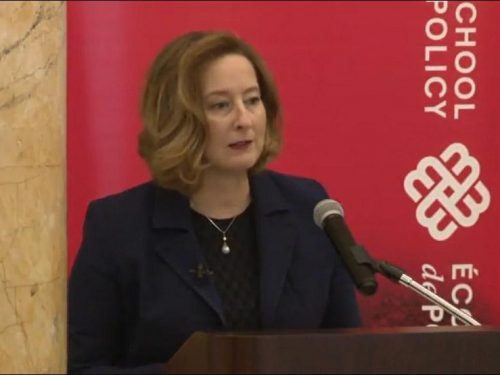Bank to review the monetary policy framework ahead of 2021 renewal, says Senior Deputy Governor Wilkins
The Bank of Canada will assess a broad range of monetary policy frameworks ahead of the renewal in 2021 of the inflation-control agreement, a joint agreement between the federal government and the Bank that is renewed every five years, Senior Deputy Governor Carolyn A. Wilkins said today at McGill University’s Max Bell School of Public Policy.
“There is no doubt that our inflation-targeting framework has promoted the economic and financial well-being of Canadians,” said Senior Deputy Governor Wilkins. “A decade of experience in the post-crisis world, though, shows us it is not perfect. It is time to conduct a thorough review of the alternatives.”
The review will take into account two key challenges of the post-crisis era: First, the Bank’s estimate of the nominal neutral interest rate is lower than before, so there is less conventional policy firepower to use in an economic downturn. Second, the lower neutral rate may encourage households and investors to take on excessive risk, leaving the economy exposed to boom-bust financial cycles.
The Bank’s research work plan will focus on a comprehensive side-by-side assessment of alternative frameworks. In her remarks, Wilkins discussed some outstanding questions regarding several alternatives, such as a higher target for inflation, a target path for the level of aggregate prices or nominal income, and a dual mandate.
The Bank’s work plan will also focus on options to strengthen the Bank’s slate of unconventional policy tools that can be used if needed. In its work, the Bank will engage with academics and other central banks as well as a wide range of private sector stakeholders and interested Canadians.
“We need to keep it simple: focus on clear objectives that monetary policy can actually achieve, and assess how it affects people,” Senior Deputy Governor Wilkins said. “We will need to improve our methods to account for considerations such as distributional effects and financial stability. We also must ensure that the right supporting policy tools and measures are available in extraordinary circumstances.”

